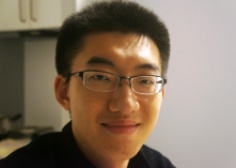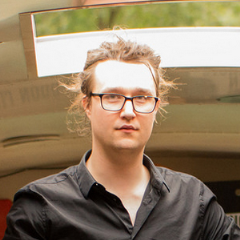 It is a commonplace in the philosophical literature of the XX century to consider that the phenomenological method of reflection is a kind of internalism or introspection. This is so partially due to the fact that reflection is the process whereby consciousness directs its intentional aim at itself, thereby taking itself as its own object. In this regard, reflection appears to be a higher-order act that reifies a state into a sort of mental item. Or to phrase it differently: reflection — as King Midas’ golden touch — turns all that which it reflects upon into an object, and thus subjectivity into a form of self-objectification. As a consequence, reflection paradoxically leads to an infinite regress.
It is a commonplace in the philosophical literature of the XX century to consider that the phenomenological method of reflection is a kind of internalism or introspection. This is so partially due to the fact that reflection is the process whereby consciousness directs its intentional aim at itself, thereby taking itself as its own object. In this regard, reflection appears to be a higher-order act that reifies a state into a sort of mental item. Or to phrase it differently: reflection — as King Midas’ golden touch — turns all that which it reflects upon into an object, and thus subjectivity into a form of self-objectification. As a consequence, reflection paradoxically leads to an infinite regress.
However things are not as simple as they seem at first glance: neither the phenomenological method of transcendental reflection is a sort of psychological introspection, nor the self-objectification is its major problem. What is really at stake here is the very possibility of phenomenology according to Husserl’s principle of principles. As is well known, this principle stated that phenomenology is supposed to base its considerations on that which is given intuitively in the phenomenological reflection. The crucial question is therefore whether intuition and reflection manage to apprehend the self-manifestation of subjectivity as such.

 Even before the publication of his Logical Investigations, Husserl had begun to analyze intentional consciousness as a matter-form complex: Perceptual intentionality, for instance, comes about when immanent non-intentional sensations are animated by an intentional apprehension.
Even before the publication of his Logical Investigations, Husserl had begun to analyze intentional consciousness as a matter-form complex: Perceptual intentionality, for instance, comes about when immanent non-intentional sensations are animated by an intentional apprehension.
 Not many people would deny that they experience a sense of selfhood: that they are who they are, that they are the thinker of their thoughts, the subject of their experiences, the agent of their actions. That they are the body that they move and that they are the one who is speaking the words that come out of their mouth.
Not many people would deny that they experience a sense of selfhood: that they are who they are, that they are the thinker of their thoughts, the subject of their experiences, the agent of their actions. That they are the body that they move and that they are the one who is speaking the words that come out of their mouth.